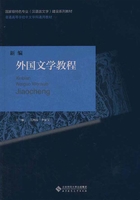The Negroes at the close of the war were not slaves or serfs, nor were they citizens.What was to be done with them and for them? The Southern answer to this question may be found in the so- called "Black Laws," which were enacted by the state governments set up by President Johnson.The views of the dominant North may be discerned in part in the organization and administration of the Freedmen's Bureau.The two sections saw the same problem from different angles, and their proposed solutions were of necessity opposed in principle and in practice.
The South desired to fit the emancipated Negro race into the new social order by frankly recognizing his inferiority to the whites.In some things racial separation was unavoidable.New legislation consequently must be enacted, because the slave codes were obsolete; because the old laws made for the small free Negro class did not meet present conditions; and because the emancipated blacks could not be brought conveniently and at once under laws originally devised for a white population.The new laws must meet many needs; family life, morals, and conduct must be regulated; the former slave must be given a status in court in order that he might be protected in person and property;the old, the infirm, and the orphans must be cared for; the white race must be protected from lawless blacks and the blacks from unscrupulous and violent whites; the Negro must have an opportunity for education; and the roving blacks must be forced to get homes, settle down, and go to work.
Pending such legislation the affairs of the Negro remained in control of the unpopular Freedmen's Bureau--a "system of espionage," as Judge Clayton of Alabama called it, and, according to Governor Humphreys of Mississippi, "a hideous curse" under which white men were persecuted and pillaged.Judge Memminger of South Carolina, in a letter to President Johnson, emphasized the fact that the whites of England and the United States gained civil and political rights through centuries of slow advancement and that they were far ahead of the people of European states.Consequently, it would be a mistake to give the freedmen a status equal to that of the most advanced whites.Rather, let the United States profit by the experience of the British in their emancipation policies and arrange a system of apprenticeship for a period of transition.When the Negro should be fit, let him be advanced to citizenship.
Most Southern leaders agreed that the removal of the master's protection was a real loss to the Negro which must be made good to some extent by giving the Negro a status in court and by accepting Negro testimony in all cases in which blacks were concerned.The North Carolina committee on laws for freedmen agreed with objectors that "there are comparatively few of the slaves lately freed who are honest" and truthful, but maintained that the Negroes were capable of improvement.The chief executives of Mississippi and Florida declared that there was no danger to the whites in admitting the more or less unreliable Negro testimony, for the courts and juries would in every case arrive at a proper valuation of it.Governors Marvin of Florida and Humphreys of Mississippi advocated practical civil equality, while in North Carolina and several other States there was a disposition to admit Negro testimony only in cases in which Negroes were concerned.The North Carolina committee recommended the abolition of whipping as a punishment unfit for free people, and most States accepted this principle.Even in 1865, the general disposition was to make uniform laws for both races, except in regard to violation of contracts, immoral conduct, vagrancy, marriage, schools, and forms of punishment.In some of these matters the whites were to be more strictly regulated; in others, the Negroes.
There was further general agreement that in economic relations both races must be protected, each from the other; but it is plain that the leaders believed that the Negro had less at stake than the white.The Negro was disposed to be indolent; he knew little of the obligations of contracts; he was not honest;and he would leave his job at will.Consequently Memminger recommended apprenticeship for all Negroes; Governor Marvin suggested it for children alone; and others wished it provided for orphans only.Further, the laws enacted must force the Negroes to settle down, to work, and to hold to contracts.Memminger showed that, without legislation to enforce contracts and to secure eviction of those who refused to work, the white planter in the South was wholly at the mercy of the Negro.The plantations were scattered, the laborers' houses were already occupied, and there was no labor market to which a planter could go if the laborers deserted his fields.
What would the Negro become if these leaders of reconstruction were to have their way? Something better than a serf, something less than a citizen--a second degree citizen, perhaps, with legal rights about equal to those of white women and children.Governor Marvin hoped to make of the race a good agricultural peasantry; his successor was anxious that the blacks should be preferred to European immigrants; others agreed with Memminger that after training and education he might be advanced to full citizenship.
These opinions are representative of those held by the men who, Memminger excepted, were placed in charge of affairs by President Johnson and who were not especially in sympathy with the Negroes or with the planters but rather with the average white.All believed that emancipation was a mistake, but all agreed that "it is not the Negro's fault" and gave no evidence of a disposition to perpetuate slavery under another name.















